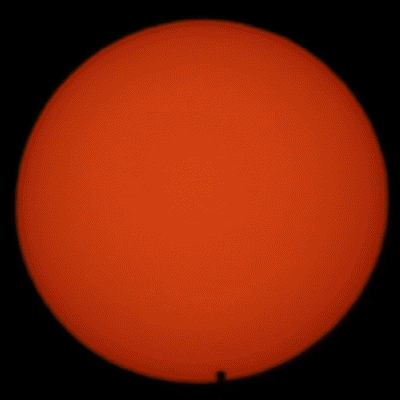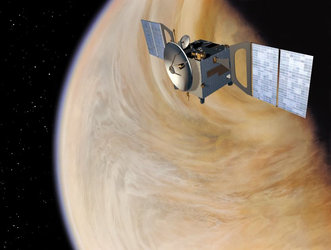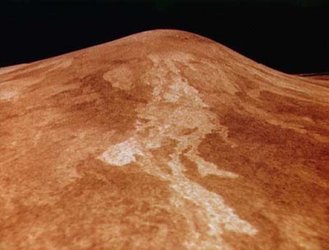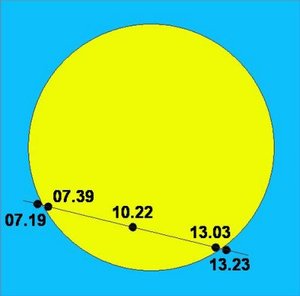Planet Venus completes transit
The planet Venus completed its very rare passage across the face of the Sun yesterday - an event not witnessed since 1882.
This ‘transit’ of Venus began at about 07:20 CET with the planet's small black disc edging over the bright limb of our star. The phenomenon continued for about six hours, ending around 13:24 CET.
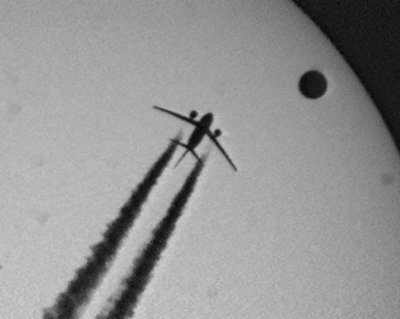
Venus transits occur approximately four times every 243 years, more precisely in pairs of events separated by about eight years and these pairs are separated by about 105 or 121 years.
This has happened only six times in since telescopic observations began: in 1631, 1639, 1761, 1769, 1874 and 1882. The next transit will now be in 2012, and the one after that will be in 2117.
The reason for these long intervals is because the orbits of Venus and the Earth do not lie in the same plane and a transit can only occur if both planets and the Sun are situated exactly in line.
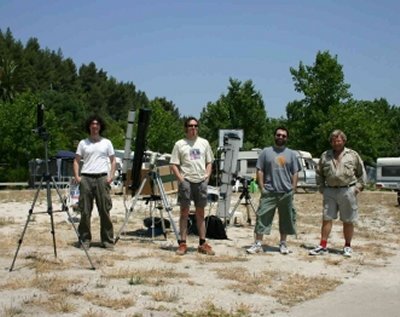
The images seen live on the ESA Science web site were brought to you by a team of astronomers based at ESA’s European Space Astronomy Centre (ESAC) in Villafranca, Spain.
The forecast of poor weather meant that the ESAC observers left Madrid and headed for Portugal with their ‘mobile observatory’, from where they sent back their amazing images.
These images were captured between two and five minutes apart using a telescope and webcam linked to a laptop PC. The laptop transmitted the images via a mobile phone back to ESAC ready for publishing on the internet.
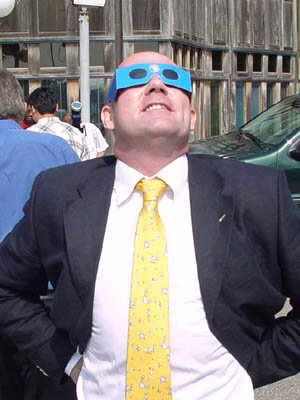
ESA astronaut Andre Kuipers joined several hundreds of staff at the ESTEC site in Noordwijk, the Netherlands, to be treated to a viewing session complete with telescopes, video cameras and projectors set up by astronomers from ESA Science Directorate.
People from all over the world gathered to watch this once-in-a-lifetime event. REMEMBER the dangers of looking directly at the Sun - observers were urged to view safely, and were invited to use special filter glasses.


